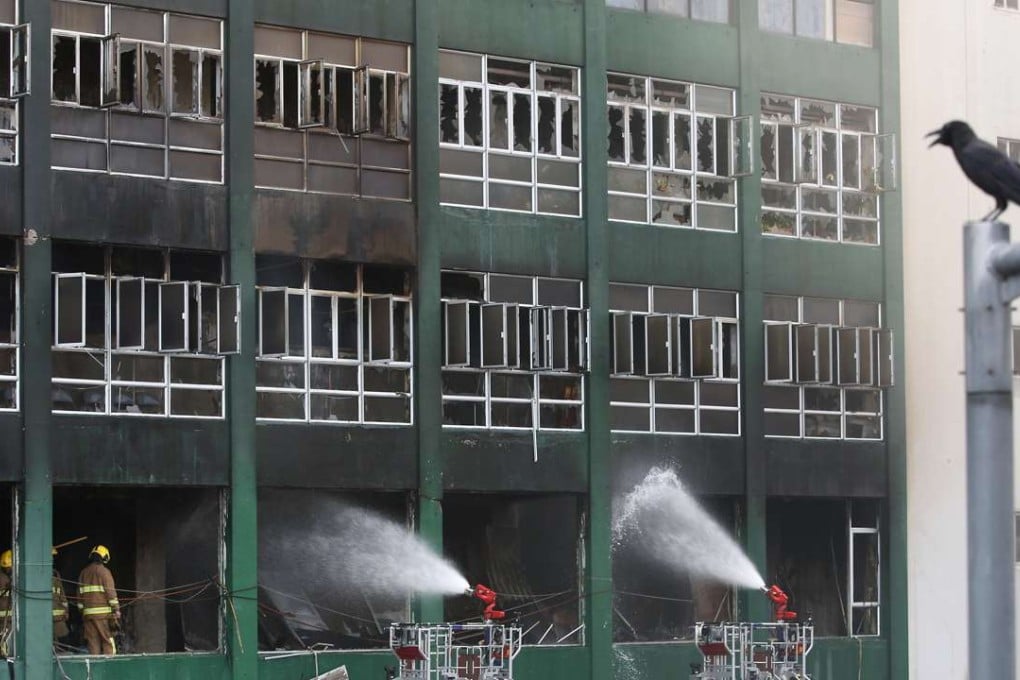More must be done to prevent further fire tragedies
The enforcement action announced by the government on Friday, targeting six high-risk buildings with learning centres, shops, restaurants, religious gathering and entertainment places, is a belated but positive response.

Just when a citywide inspection of storage houses was launched in the wake of the deadly Ngau Tau Kok blaze, another fire broke out in a Cheung Sha Wan industrial building last week. Apart from storage facilities with poor fire safety standards, the building was also found to have subdivided living space. Thankfully, the blaze did not cause serious injuries this time. But it underlines the fire hazards of hundreds of old industrial blocks in the city.
The enforcement action announced by the government on Friday, targeting six high-risk buildings with learning centres, shops, restaurants, religious gathering and entertainment places, is a belated but positive response.
Earlier, initial checks on some 90 mini-storage facilities by the Fire Services Department have exposed a wealth of issues, such as narrow passageways, insufficient hose wheel coverage and obstruction to fire service installation. The problems were believed to have contributed to the fourth alarm inferno inside a mini-storage place in an Ngau Tau Kok building that claimed the lives of two firefighters. With hundreds of storage houses yet to be checked, more irregularities may be identified.
The Cheung Sha Wan blaze is the second industrial building fire in three weeks. Adding to the concern is the disclosure that the building is used for storage as well as living.
If there is any comfort, it will be a growing safety awareness in the industry. Negotiations over leasing of industrial premises for mini-storage houses have reportedly been put on hold pending an expected shake-up in the regulatory regime. Inevitably, the ones that fail to follow the higher safety standards will have to close down. The revamp may also result in higher compliance cost, which may well be shifted to consumers. But the consolidation process is worthy if it brings better safety and protection for people’s lives and properties.
